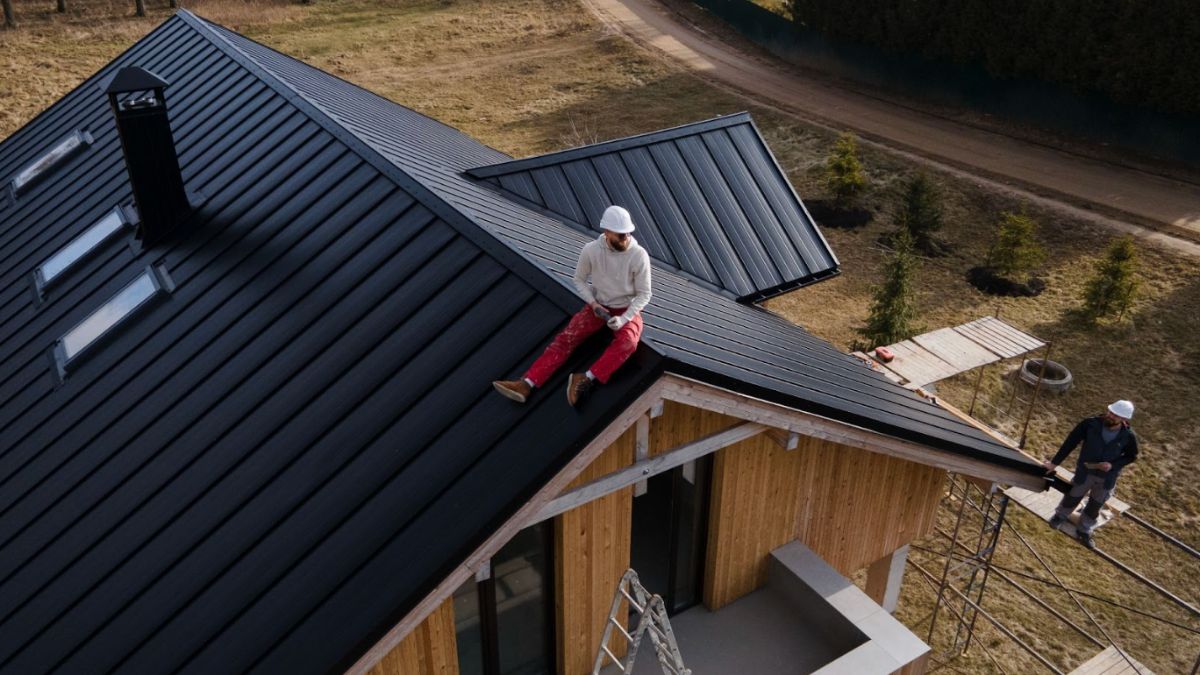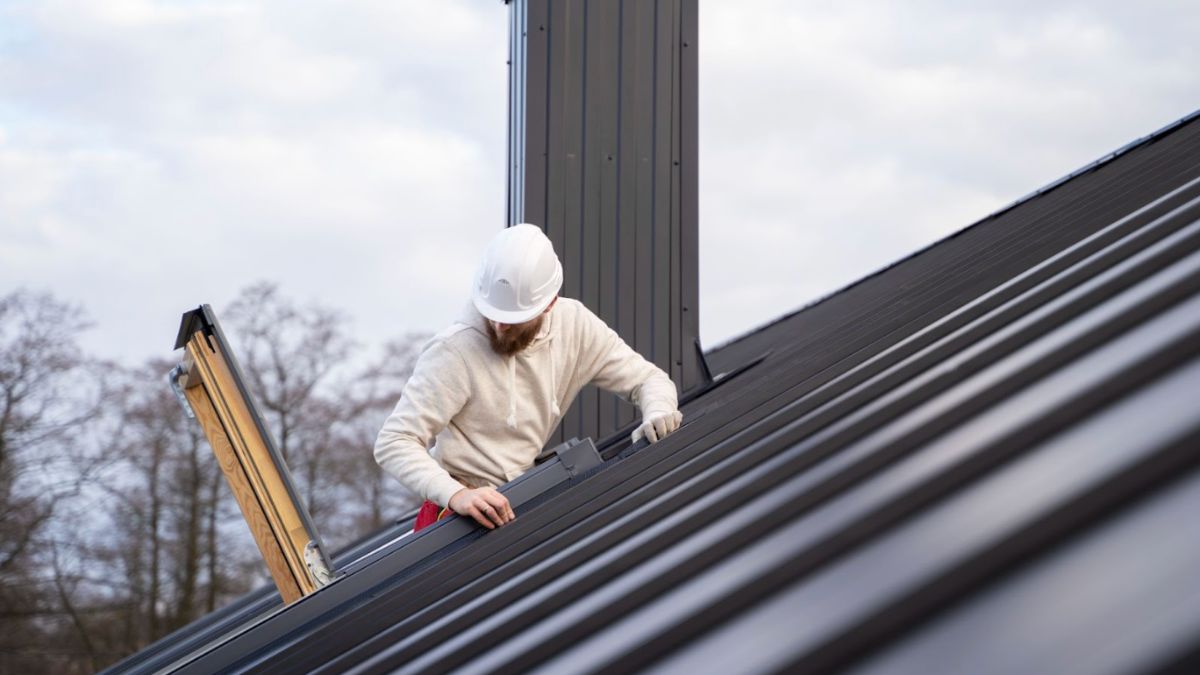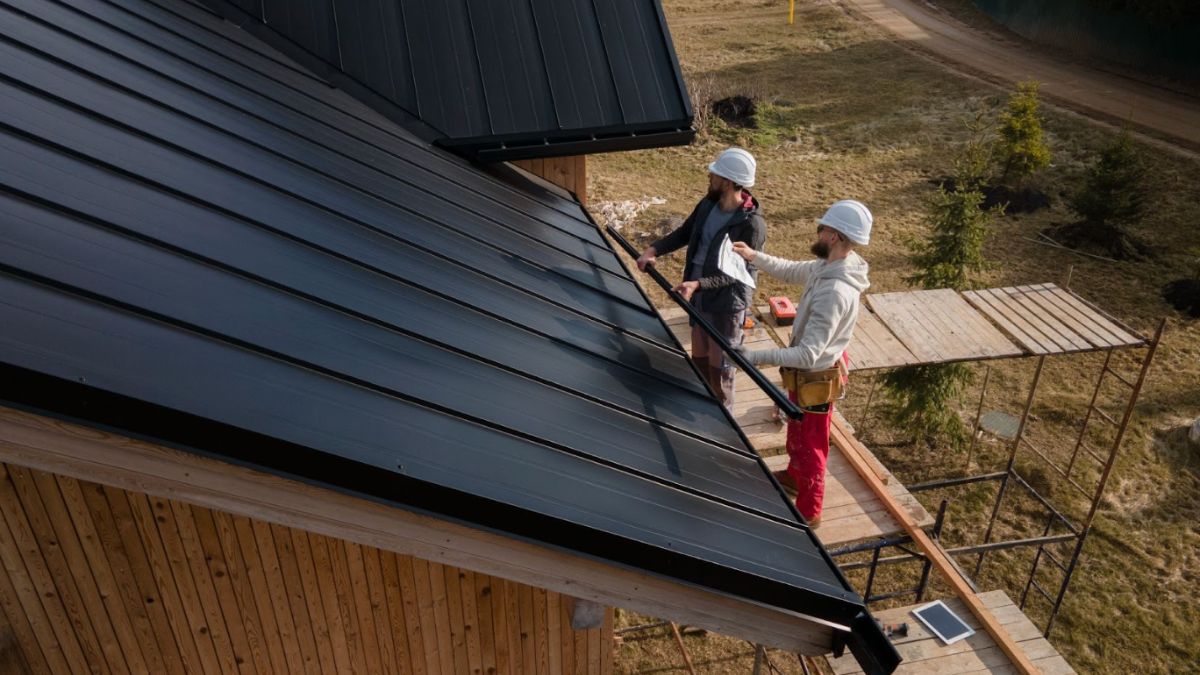Roof Repair: How Do You Prevent Future Leaks?
Roof Repair: How Do You Prevent Future Leaks?
Roof repair is essential to maintaining the integrity of your home. Early roof maintenance can prevent costly damage from broken shingles, fractured flashing, or leaks. If unchecked, roof leaks can cause structural damage, mildew, and increased energy expenses. Regularly checking and repairing your roof will increase lifespan and keep your house safe and pleasant.

At i5 Exteriors, we recognize how important a solid, well-maintained roof is for your home’s safety and comfort. Our skilled team is dedicated to providing superior roof repair services to address leaks and other roofing issues. With years of industry knowledge, we provide custom solutions to guarantee your roof remains leak-free and durable for years to come. Trust us to secure your house with high-quality repairs and competent upkeep.
For Professional Roofing Services,
Call i5 Exteriors at (360) 718-2203 Today!
What You Need To Know About Roof Repair?
Signs of a Leaking Roof
Roof leaks can be subtle or obvious, but recognizing them quickly is critical. One of the most common signs is water stains on your ceiling. These stains often appear as dark, discolored spots that can grow over time. You may also notice damp walls from water seeping down the roof.
Another major red flag is mold growth. Mold grows in moist areas, so if you see it on your ceiling, walls, or attic, it might be a sign of a roof leak. Mold damages your home and can lead to health issues, so addressing roof leaks promptly is critical.
Locating the Source of the Leak
Once you’ve spotted signs of a roof leak, locating the source is essential. Begin by inspecting your attic for any evidence of water infiltration. Look for wet insulation or dark spots on the roof decking. After inspecting the attic, head outside to inspect the roof surface. Look for noticeable signs of damage, such as missing shingles or cracked flashing. While some leaks are easy to spot, others require a more thorough inspection by a professional roof repair specialist to pinpoint the source.
Causes of Roof Leaks
-
Damaged Shingles
Shingles are the first line of defense for your roof; water may readily leak through if broken. Cracked, bent, or missing shingles can allow water to reach the underlayment, causing leaks within your house.
-
Cracked Flashing
Flashing seal joints on your roof, particularly around chimneys, vents, and skylights. Over time, flashing can crack or become loose, creating openings for water to enter. Inspecting and repairing flashing is crucial in roof repair to prevent leaks.
-
Improperly Sealed Valleys
Roof valleys, where two roof planes converge, are common areas for leaks. Water may flow into your property if these valleys need to be adequately sealed. Improper sealing or damage to the materials in these areas often results in leaks.
-
Clogged Gutters
Gutters are supposed to direct water away from your roof, but water may back up and pool on the roof when it gets clogged with leaves, mud, and debris. This standing water can eventually cause leaks.
-
Skylight Issues
Skylights provide natural light to your house but can also cause leaks if improperly installed or maintained. Cracked seals around the skylight or issues with the glass itself can lead to water intrusion.
-
Chimney Leaks
Chimneys are another typical cause of roof leaks. The flashing around the base of the chimney can wear out or become damaged over time, allowing water to seep in. Additionally, cracks in the chimney itself can also result in leaks.
Steps to Repair Roof Leaks
-
Safety Precautions
Before beginning any roof repair, safety should be your top priority. Have a sturdy ladder, appropriate footwear, and safety gear such as gloves and a harness if necessary. Working with a partner or notifying someone when working on the roof is also essential.
-
Repairing Shingles
When repairing shingles, start by removing any damaged shingles. Lift the broken shingles and nails with a pry bar, careful not to harm the surrounding area. Once the damaged shingles are removed, install new ones, secure them with roofing nails, and apply a sealant to keep a watertight fit.
-
Fixing Flashing Leaks
Flashing repairs require removing old, damaged flashing and replacing it with new materials. Use a pry bar to remove the old flashing, then clean the area thoroughly. Install new flashing, securing it with nails and sealing it with roofing cement to prevent future leaks.
-
Sealing Leaky Joints
Leaky joints, particularly around chimneys and vents, can be sealed using roofing cement. Apply the cement generously to the affected area, covering all gaps. This simple roof repair technique can prevent further water intrusion.
-
Repairing Skylights
Skylights require special attention when it comes to roof repair. If the seals around the skylight are cracked, apply new weatherproofing material. If the glass itself is damaged, it may need to be replaced.
-
Fixing Chimney Leaks
Chimney leaks often involve repairing or replacing the flashing around the chimney base. If the chimney has cracks, these should be sealed with masonry repair material to prevent water from entering the structure.

How to Prevent Future Roof Leaks
-
Regular Roof Inspections
Regular inspection is one of the effective roof leak prevention methods. Checking your roof twice a year, particularly after significant storms, can help catch minor issues before they become major.
-
Proper Roof Maintenance
Maintaining your roof through timely repairs and cleaning can extend its lifespan and prevent leaks. Please replace the damaged shingles and seal the flashing as soon as possible.
-
Gutter Cleaning
Clean gutters are essential for preventing roof leaks. Make it a practice to clean your gutters of leaves and debris at least twice yearly. Water accumulating on the roof from clogged gutters increases the leak risk.
-
Prompt Repair of Minor Damages
Even minor roof issues, such as a few missing shingles or small cracks in the flashing, should be repaired immediately. Minor issues can soon become major leaks if ignored.
-
Cost of Roof Leak Repairs
- Factors Affecting Cost
Roof leak repair costs depend on several factors. Leak size is essential. More significant leaks take more materials and time to fix. Clogged gutters can pool water on the roof, increasing leak risk. The leak’s location also matters as harder-to-reach areas may result in higher labor costs. Some situations may call for roof replacement.
The roofing materials needed for the repair also affect the cost. Higher-quality materials may be more expensive, but they offer superior long-term protection.
- Average Cost Estimates
On average, roof repairs for minor leaks may range from a few hundred to a few thousand dollars, depending on the scope of work you need your roofing contractors to do. A simple shingle replacement may cost less, while more extensive repairs, such as fixing skylights or replacing large roof sections, will increase the price.

Roof inspections, proper maintenance, and timely repairs can extend the life of your roof and keep your home safe and dry for years to come. Roof leaks may undermine your home’s structural integrity, promote mold development, and reduce its value. By repairing leaks as soon as they happen, you may save more costly repairs and keep your house safe and comfortable. If you’re ever unsure about handling a roof repair independently, don’t hesitate to call a professional so the job is done correctly.
For Reliable Roofing Installation,
Call i5 Exteriors at (360) 718-2203 Today!
Vancouver, WA Office
8100 NE Saint Johns Rd.Vancouver, WA 98665
(360) 718-2203
The post Roof Repair: How Do You Prevent Future Leaks? first appeared on i5 Roofing & Exteriors Inc..
from i5 Roofing & Exteriors Inc. https://i5exteriors.com/roof-repair-how-do-you-prevent-future-leaks/
via i5 Exteriors

Comments
Post a Comment